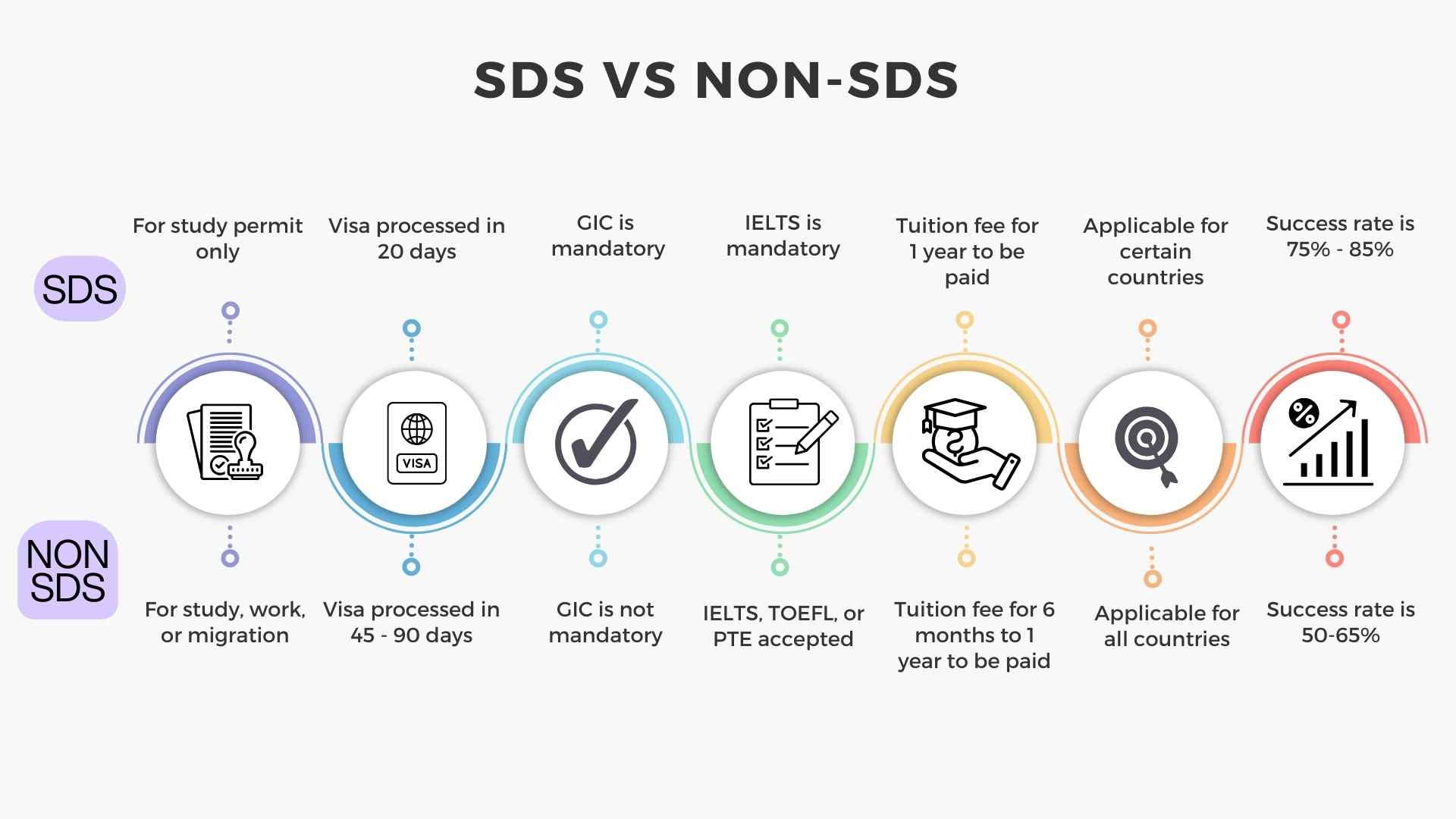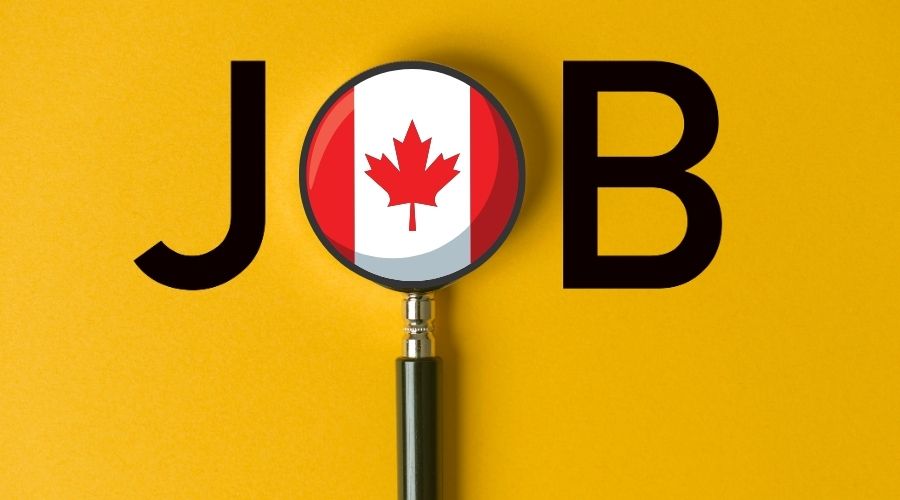Canada’s Student Direct Stream (SDS) has been a popular pathway for international students seeking a faster, more streamlined study permit process. With quicker processing times and simplified requirements, SDS has helped thousands of students from eligible countries pursue their educational goals in Canada. But now, imagine a scenario where SDS is no longer available. What would that mean for aspiring students?
In this blog post, we’ll explore the potential impact of the end of the SDS program, how it could affect future international students, and what alternative options students might consider if this streamlined pathway were to be discontinued.
What is SDS, and Why Has It Been Popular?
The Student Direct Stream (SDS) program was introduced by Immigration, Refugees and Citizenship Canada (IRCC) as a way to expedite the study permit process for students from select countries. By meeting certain financial and academic requirements up front, eligible students could enjoy processing times as short as 20 days, compared to the longer wait times for standard study permit applications.
SDS has been available to students from countries such as India, China, the Philippines, Vietnam, Pakistan, Brazil, and several others. Key benefits included:
- Faster Processing Times: SDS applications were prioritized, giving students peace of mind with shorter waiting periods.
- Simplified Requirements: By demonstrating adequate financial readiness and language proficiency, students could minimize the need for extensive documentation.
- Certainty in Planning: With a faster timeline, students could better coordinate their travel, accommodation, and enrollment without facing delays.

The Potential End of SDS: What It Means for Future Students
While SDS has been a vital program, imagine if IRCC were to end the stream. This would impact both prospective international students and Canadian institutions. Here’s what it could mean:
1. Longer Processing Times
Without SDS, students would need to rely solely on the standard study permit process, which could mean longer wait times. Processing a non-SDS application can take anywhere from several weeks to a few months, depending on the country and season. This delay could impact students’ ability to begin their programs on time, especially if they’re applying close to the start date.
2. Increased Documentation Requirements
SDS helped simplify the application process by requiring a Guaranteed Investment Certificate (GIC) and proof of payment for the first year’s tuition. If the SDS were discontinued, students might face additional financial documentation requirements. This could complicate the application process, making it more time-consuming and potentially stressful for students who would need to gather multiple bank statements or financial affidavits.
3. Uncertainty and Planning Challenges
One of the biggest advantages of SDS was the ability to plan confidently. Students could apply knowing they would likely receive a response within 20 days. The end of SDS could bring uncertainty, especially for students who need to arrange accommodation, book flights, and plan their finances. They may need to start the process even earlier to ensure they have enough time to receive their permit before their program begins.
4. Potential Impact on Canadian Universities and Colleges
Canadian institutions have become increasingly reliant on international students, and SDS was a critical tool for attracting students from high-demand regions. The end of SDS could make Canada a less attractive option for some students, as competing countries (like the UK and Australia) offer similar expedited pathways. Canadian universities and colleges might see a dip in applications from certain regions, especially if students opt for countries with faster and more predictable visa processes.
Why Might Canada End SDS? Hypothetical Scenarios
It’s worth noting that SDS has been effective for both Canada and international students, so the reasons for ending it would need to be compelling. Some possible reasons could include:
- Policy Shift Towards Equal Processing: IRCC might decide to prioritize all applications equally instead of offering expedited services to specific countries.
- Concerns About Fraud or Misuse: If there were significant concerns about misuse of the SDS system or fraudulent documents, Canada might consider ending the program to strengthen immigration controls.
- Resource Allocation: The cost and resources needed to maintain SDS might be redirected toward other immigration initiatives, especially if IRCC believes the standard application process is sufficient for processing study permits.
Alternative Options for Students if SDS Were to End
While the end of SDS would indeed make things more challenging, students would still have pathways to study in Canada. Here’s what prospective students can do to improve their chances:
1. Apply as Early as Possible
With potentially longer processing times, students should apply well in advance of their program start date. Starting the application process 6–12 months in advance can help reduce stress and ensure that delays don’t impact their studies.
2. Focus on Comprehensive Documentation
Without SDS, students might need to provide more extensive documentation to prove financial stability. Be prepared to submit detailed bank statements, financial affidavits, or proof of parental or sponsor support to satisfy the requirements for a non-SDS application.
3. Consider Alternative Study Destinations
If Canada’s processing times and requirements become too challenging, some students may explore studying in other countries with similar quality education systems, like the United Kingdom, Australia, or the United States, each of which has its own fast-track visa processes.
4. Stay Updated with IRCC Announcements
The rules and requirements for Canadian immigration can change. Students should keep an eye on updates from IRCC and consult with authorized immigration advisors to understand the latest requirements and any new programs that may be introduced to replace SDS.
5. Leverage Canadian Embassy Support
In some cases, Canadian embassies or consulates offer information sessions or resources to help international students with their applications. Attending these events can provide valuable insights and ensure that you understand what is needed for a successful application.
Conclusion
While the end of Canada’s Student Direct Stream (SDS) is a hypothetical scenario, it raises important considerations for both international students and Canadian institutions. SDS has been a valuable tool in helping students from select countries access Canadian education quickly and efficiently. Losing this program would mean adjusting to new processes, potentially with longer wait times and increased documentation requirements.
International students dreaming of studying in Canada should stay proactive, apply early, and be prepared with all necessary documents to ensure a smooth application experience. If Canada does choose to discontinue SDS, it’s likely that IRCC will explore other options to keep Canada competitive in the global education landscape.
Canada remains a top destination for international students, offering world-class education, a high quality of life, and opportunities for work and residency. Even without SDS, Canada will continue to welcome students from around the world—though it may require a bit more patience and preparation along the way.
Read More



























